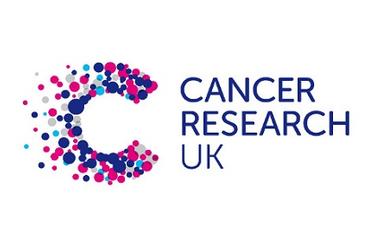Cancer Research UK is making significant cuts to its research programmes, due to lost fundraising income caused by coronavirus crisis.
In an open letter to cancer researchers it said the cuts “will set back the cancer research effort within the UK, potentially for many years”.
Other medical research charities have launched emergency appeals asking the public to support them. They have also had to interrupt or rethink their work in light of the current situation, including supporting researchers that have been called to the frontline to assist with Covid-19 testing or clinical trials.
Funding cuts ‘devastating’ for the work of scientists
Cancer Research UK said it is cutting funding to its existing grants and institutes by up to 10% and its national network of centres by around 20%, which in total amounts to about £44m. It will not be funding any new research projects for at least six months.
Cancer Research UK says it funds about half of all cancer research in the UK. The letter published on its website and signed by Iain Foulkes, executive director of research and innovation, Professor Karen Vousden, chief scientist, and Professor Charles Swanton, chief clinician, says that “to ensure we can continue to have this role in the long term, we need to shore up our income in the short term”.
It also says: “We know these funding cuts will be devastating to the work of our scientists and clinicians, and that the scope and focus of these changes will raise many questions.”
Cancer Research UK is also supporting the Covid-19 research effort. Clinicians are working in hospitals, it has donated equipment and is setting up its own testing hubs.
The charity previously announced it is expecting to lose 20-25% of its fundraising income this year and is furloughing 1,800 staff that normally work in its retail chain. The executive board has taken a 20% pay cut and the charity said it is consulting with staff to extend pay cuts to the rest of the team.
‘The most difficult decision we have had to make’
Foulkes said: “Covid-19 has left the whole world in uncharted waters. And the unprecedented measures to control the global Covid-19 pandemic have had a huge impact on both our researchers’ ability to carry on in the lab, and on our ability to fundraise.
“Cancer Research UK funds nearly 50% of the cancer research in the UK and making cuts to research funding is the most difficult decision we have had to make. We don’t do so lightly. We have worked hard to ensure the cuts are limited and give our researchers flexibility in how to make them. Ultimately, it is our research that delivers benefit to people affected by cancer, and this remains our first priority. We are hopeful that limiting our spending now will enable us to continue funding life-saving research in the long run.
“Cancer doesn’t go away during or after Covid-19, but we’re incredibly proud of our community of researchers who have been very quick to respond to the crisis, using their kit, skills and talent to support the NHS and the Covid-19 response. Our mission is so important to people all over the UK and by helping the global effort of tackling Covid-19, we hope we can get back to beating cancer as soon as possible.”
Emergency appeals
Many other medical charities of all sizes are facing similar challenges. Some, like Action Medical Research and the Motor Neurone Disease Association (MNDA), have launched emergency fundraising appeals to try and make up for the loss of income from events and public fundraising.
MNDA’s appeal said: “At a time when we need to do more, we are facing a devastating drop in income as a result of the crisis, with the loss of up to a third of our annual income as a result.”
The pandemic is also causing a range of difficulties to research, including scientists having to work from home or being called to the front line. Charities are often having to choose between supporting the fight against Covid-19 and their own research field.
Aisling Burnand MBE, chief executive of the Association of Medical Research Charities, said: “With those working on the frontline of health care facing unprecedented challenges, it is the right decision to focus efforts and resources on Covid-19. We know that this decision has not been taken lightly, and has been made with an appreciation of the significant impact it will inevitably have in all areas of research.
“We sympathise with all those having to make such difficult choices. Clinical trials are not only vital to the development of new treatments and an improved understanding of diseases, for many patients, they are a crucial lifeline.
“The decision to suspend clinical trials, if doing so does not endanger the patient, will have a significant impact on participating patients and their families. We ask that decisions on each trial are made with that impact on patients in mind. These decisions need to be proportionate, and communicated transparently and sensitively.”
Some charities, including BHF and Wellcome Trust, have pledged to continue paying the salary of staff being called to the frontline in some cases, and potentially recover costs from NHS later on.












